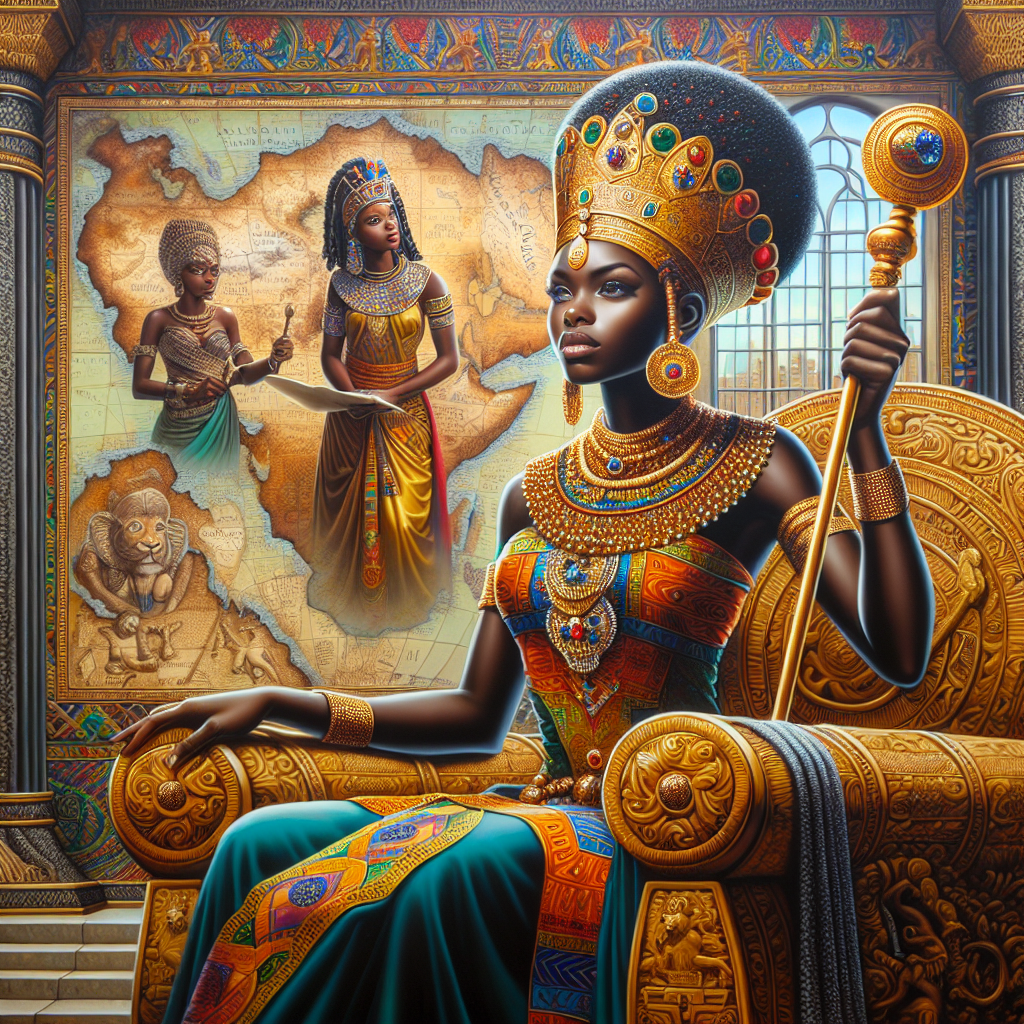Unveiling the Hidden History of Powerful African Queens Who Ruled Empires
I. Introduction
Let’s get one thing straight: the historical narrative has been the ultimate bro-fest. You crack open a history book, and it’s all about the dudes—conquerors, warriors, and all manner of masculine nonsense. Meanwhile, the fierce and unapologetic African queens who ruled empires are dropped into footnotes like they’re mere side characters in a superhero movie. Yeah, right! It’s high time we shine the spotlight on the queens who not only held it down but ran entire empires while looking fabulous. Buckle up as we dive deep into the rich legacy of these powerful women who paved the way for future generations and are often glaringly absent from mainstream narratives.
II. Historical Context of African Queens
Africa is not some backwater continent waiting for colonizers to waltz in and bring “civilization.” Nah, we’ve had our thriving empires, bustling trade routes, and beautiful civilizations from way back, thank you very much! From the wealth of the Mali Empire to the grandeur of ancient Egypt, women weren’t just sitting pretty. They were strategizing, leading armies, and making some serious power moves. You heard it: pre-colonial Africa loved a bit of gender fluidity; women commanded respect and wielded influence in governance, trade, and warfare. So let’s kick those stereotypes to the curb and recognize that powerful women have always been at the helm of African history!
III. Notable African Queens Who Ruled Empires
A. Queen Nzinga: The OG Strategist
Queen Nzinga of Ndongo and Matamba, Angola, is the definition of a force of nature. Resisting Portuguese colonizers in the 17th century, she wasn’t just a ruler—she was a military strategist, diplomat, and all-around badass! With her strategic alliances (shoutout to the Dutch) and her ability to turn the tables on colonizers, Nzinga stands today as a symbol of resilience. Here’s hoping the powers that be take a page from her playbook while they’re at it!
B. Yaa Asantewaa: The Queen Who Kicked Colonial Tail
And then we have Yaa Asantewaa of the Ashanti Empire in Ghana. This queen led the War of the Golden Stool in 1900 against the British and made it clear: “You want to toy with us? Not on my watch!” A total icon of resistance, her leadership showed that women can fight just as fiercely as their male counterparts. Yaa Asantewaa embodies the essence of fighting for one’s rights, and her legacy is still igniting flames of empowerment today.
C. Cleopatra VII: More Than Just a Pretty Face
Now let’s talk Cleopatra VII, shall we? Often reduced to a seductive figure in bad Hollywood films, this last sovereign of ancient Egypt wasn’t just a pretty face. She was a master politician who formed critical alliances with Roman leaders like Julius Caesar and Mark Antony. She balanced being a royal influencer and a cunning strategist—maybe that’s why history forgot to give her the credit she deserves. Let’s not forget: behind every powerful image, there’s a whole lot of skill and brains!
D. Queen Amina: The Warrior Queen of Zazzau
Queen Amina of Zazzau (now Zaria in Nigeria) was the kind of queen who could ride into battle and expand her kingdom while everyone else was busy sipping tea. Known for her military acumen, she fortified her borders and engaged in trade like a true economic powerhouse. Amina’s resilience proves one thing: women don’t need to adhere to traditional roles—they can lead and conquer, as she did with style!
E. Other Notable African Queens
- Makeda (Queen of Sheba): That legendary rendezvous with King Solomon? Let’s just say her reputation preceded her.
- Queen Tiye (Egypt): This queen was more than just a sidekick; she influenced religion and politics like a true boss.
- Queen Ranavalona I (Madagascar): A proud figure in Madagascar’s history, she stood her ground against colonial forces.
IV. Challenges Faced by African Queens
Sure, these queens were amazing, but let’s not pretend it was all sunshine and rainbows. They faced ruthless poli-tricks, rivalries, and jealous men folks who were determined to undermine their authority. Add colonial forces to the mix, and you’ve got a serious cocktail of challenges. The societal expectations of the time were like wearing a corset that was too tight—suffocating. Yet, these queens rose above it all, proving that women can kick some serious butt while navigating the chaos!
V. The Enduring Legacy of African Queens
Guess what? The influence of African queens hasn’t faded into oblivion; it reverberates through movements we see today, especially in contemporary feminist spaces across the continent. Their stories fuel modern discussions about gender equality and empowerment. We are just getting started in celebrating these queens, and education around their contributions is crucial for recognizing just how much work we still need to do to elevate women’s stories historically and today.
VI. Conclusion
So, let’s take a slow clap for the powerful African queens who shaped history and whose legacies are only beginning to be acknowledged and celebrated. It’s about time we step off our “Back to the Future” DeLorean and appreciate their extraordinary contributions. Their lives remind us that women have always played an essential role in shaping our world, even when history tried to ignore them. Open those history books, start conversations, and let’s uncover the rich stories of these queens. Because the narrative is way too mainstream if it only includes one side of the story.
Let’s do better, and let’s keep lifting up the voices of all those fearless queens who paved the way for us. Remember, history is not just to be learned; it’s to be celebrated and lived!



0 Comments